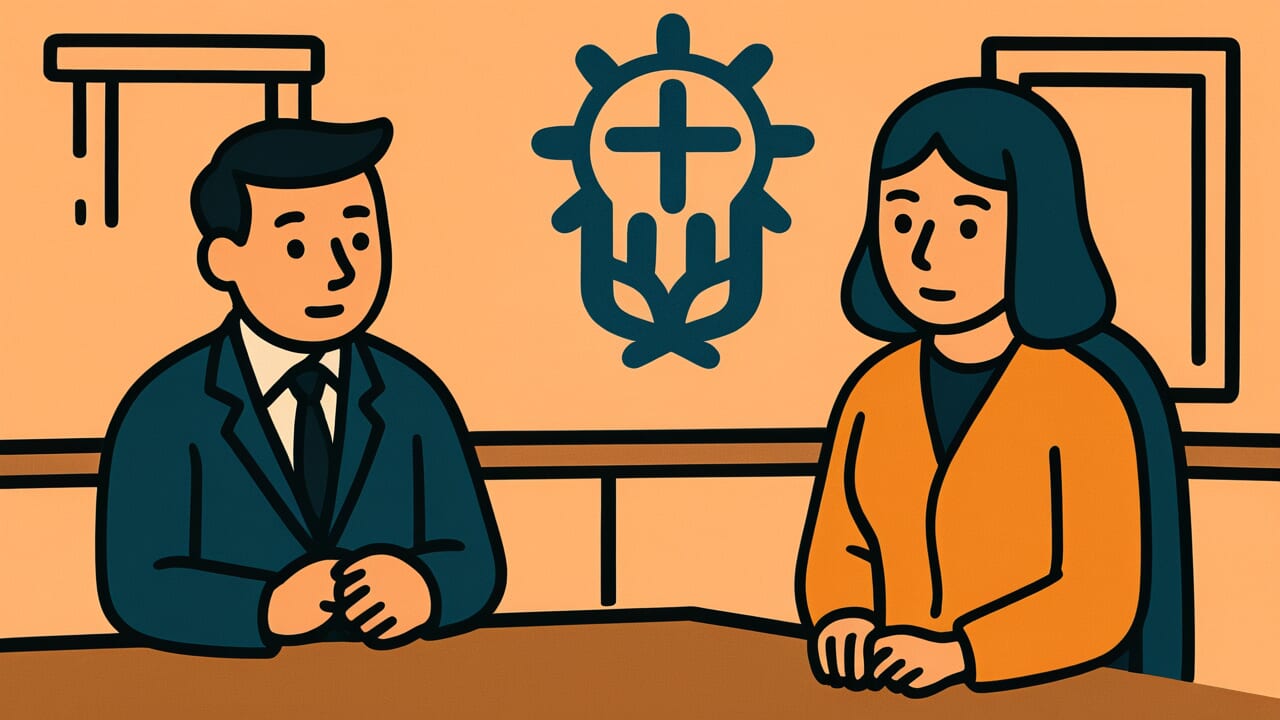How to Read “Being too comfortable leads to discord”
Kokoroyasui wa fuwa no moto
Meaning of “Being too comfortable leads to discord”
This proverb means that people in close relationships tend to forget courtesy and consideration. This carelessness becomes the cause of conflict and discord.
Family members, close friends, and longtime coworkers are all examples. Because you know these people well, you stop being careful. Your language becomes rough, and you act without thinking about their feelings.
People use this saying when close relationships become strained. It’s also used when someone needs to reconsider how they treat people close to them.
For example: “Those two were such good friends, but now they’re fighting.” “Well, being too comfortable leads to discord, you know.”
Even today, family troubles and broken friendships are common. These problems often happen precisely because people are close. This proverb teaches the importance of balancing intimacy with courtesy. Its lesson remains timeless.
Origin and Etymology
The exact source of this proverb is unclear. However, we can learn interesting things from how the words are put together.
The term “kokoroyasui” (心安い) today often means “comfortable” or “relaxed.” But in ancient times, it had a stronger meaning. It meant “letting your guard down” or “being without restraint.”
“Fuwa” (不和) means conflict or discord. “Moto” (基) refers to the foundation or root cause of something.
So this proverb expresses a paradoxical truth. It says that relationships where you let your guard down become the root cause of conflict.
Traditional Japanese thinking about relationships includes another teaching: “Even in close relationships, maintain courtesy.” Being too comfortable leads to discord belongs to the same family of wisdom.
Some scholars believe this proverb was born from actual life experiences. It likely emerged among common people during the Edo period.
What’s interesting is what this proverb doesn’t say. It doesn’t tell you to avoid becoming close to others. Instead, it gives positive advice: “Because you’re close, don’t forget courtesy.”
This saying explains the importance of maintaining proper distance in relationships. It comes from the Japanese people’s careful observation of human nature. People have passed down this wisdom for generations as preventive advice for keeping close relationships healthy and lasting.
Usage Examples
- I relied too much on my longtime friend, and being too comfortable leads to discord—our relationship fell apart
- You need to treat family members politely, or being too comfortable leads to discord and fights happen easily
Universal Wisdom
The human truth that “being too comfortable leads to discord” reveals runs remarkably deep. Why do we treat the people we should cherish most with the most careless attitudes?
The answer lies in a psychological mechanism we might call “the trap of security.” When you’re confident someone accepts you, you unconsciously relax. You let your instinctive side show through.
You display bad moods you’d never show strangers. You act selfish and inconsiderate. These behaviors come from thinking “this person will forgive me.”
But here’s the irony of human relationships. Even the closest person still wants respect and care. In fact, close people want these things even more.
Thoughtless words or actions from someone close hurt more than the same from a stranger. The greater your expectations, the deeper the pain when they’re betrayed.
This proverb has survived through the ages for a reason. As long as humans are social creatures, we cannot escape this contradiction.
We seek intimacy while also wanting respect. Balancing these two desires is the eternal challenge of human relationships.
When AI Hears This
In close relationships, both people feel “we don’t need to waste energy being careful.” This resembles the law of entropy increase in physics surprisingly well.
Entropy measures “the degree of disorder.” Everything in the universe moves toward disorder unless you add energy. This is a fundamental law.
For example, even after you clean your room, it naturally becomes messy again. This happens unless you keep adding the energy of cleaning.
Human relationships work the same way. Without adding the “order-maintaining energy” of appropriate distance and consideration, relationships naturally become disordered.
What’s interesting is that the closer you become, the more you skip this energy input. You speak politely to strangers but use rough language with family.
This is switching to “energy-saving mode” where you think “I don’t need to be careful anymore.”
In physics, when two objects at different temperatures touch, they reach the same temperature without added energy. This is called thermal equilibrium.
In human relationships, when boundaries become unclear, your territories mix together. Friction and collision increase.
Because you’re close, you must consciously keep adding the energy of “politeness.” Without it, the relationship naturally moves toward disorder—toward discord.
Lessons for Today
This proverb teaches you a simple but easily forgotten truth. You should treat the people most important to you with the most care.
This teaching becomes even more important in today’s world. Smartphones let us instantly connect with anyone. But this makes the lesson more relevant, not less.
Do you send careless replies on LINE or email to close people? Do you skip saying “thank you” or “I’m sorry” to family members?
Here’s a practical method to try. When talking with close people, consciously use the politeness you’d show someone you just met. You don’t need to be perfect.
Just say “thank you” out loud sometimes. Listen to what they say until the end. Express your gratitude. These small acts of courtesy add up.
They’re the secret to keeping relationships healthy and long-lasting.
Closeness and courtesy don’t oppose each other. Actually, courtesy makes closeness deepen and last longer.
Why not start today? Treat your relationships with important people more carefully and help them grow.



Comments